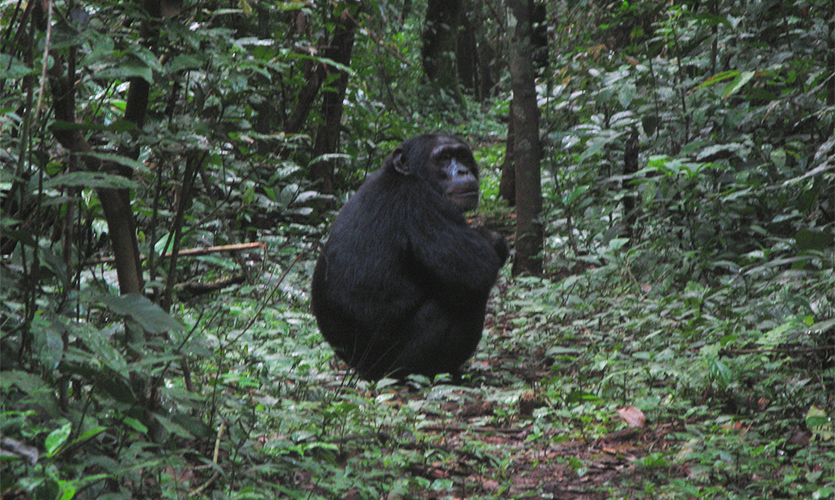Chimpanzees copy gestures to get by in a complex social world

Researchers have found that wild chimpanzees may copy each other’s gestures to maintain their complex social relationships.
Chimpanzees have a wide range of gestures they use to communicate with each other and each chimpanzee has a different set.
The study, published in Royal Society Open Science, from Liverpool John Moores University and the University of Chester, looked at how overlap in the repertoire of gestures between chimpanzees was related to their social behaviour. Chimpanzees that gestured to each other more frequently had a greater degree of overlap in their gestures, suggesting they may have learnt them from each other.
Dr Sam Roberts, the co-author on the study and a Senior Lecturer in Psychology at Liverpool John Moores University, said:
“We know that as well as regular interaction partners, chimpanzees socialise with individuals they don’t frequently meet. Chimpanzees use overlapping loud auditory gestures such as drumming on trees to experience high intensity emotions simultaneously with other group members and this may help them re-establish social bonds after a period of absence. These results suggest that both overlapping and non-overlapping gestural communication played an important role in the evolution of human language.”
Dr Anna Roberts, a Visiting Research Fellow at the Department of Psychology in the University of Chester, collected data on wild chimpanzees in the Budongo Forest, Uganda. She said:
“I discovered that chimpanzees that regularly interact tend to use a larger repertoire of overlapping visual gestures such as extending their arm. The chimpanzees also use a smaller repertoire of non-overlapping visual gestures with regular interaction partners – this may help to draw attention of others to them when they are communicating.”
Watch videos of manual gestures in wild chimpanzees


